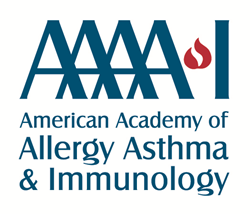
Less exposure to environmental triggers may play a role, as well as a decrease in respiratory infections that can lead to asthma exacerbations due to social distancing measures.
MILWAUKEE (PRWEB)
May 10, 2021
A study published in The Journal of Allergy and Clinical Immunology: In Practice (JACI: In Practice), an official journal of the American Academy of Allergy, Asthma & Immunology (AAAAI), found that following the onset of the COVID-19 pandemic, asthma exacerbations fell by more than 40% overall for study participants, which was comprised of African American/Black and Hispanic/Latinx adults.
Multiple reports have suggested people were avoiding health services because of the pandemic, making it difficult to tell whether exacerbations truly decreased or whether people were simply avoiding their doctors. Yet this is the first study done to assess asthma exacerbations before and during the pandemic that is unlikely to be impacted by patient healthcare avoidance.
Asthma attacks account for almost 50% of the cost of asthma care, which costs $80 billion each year in the United States. Asthma is more severe in African-American/Black and Hispanic/Latinx patients, with these groups having double the rates of attacks and hospitalizations as the general population. The PREPARE study, led by Elliot Israel, MD, FAAAAI, at Brigham and Women’s Hospital in Boston, is a national randomized, open-label, pragmatic trial that follows African American/Black and Hispanic/Latinx adults with moderate-to-severe asthma from different U.S. cities.
Participants were asked to complete monthly questionnaires for 15 months. The study recruitment began in November 2018 and concluded in March 2020, during the onset of the COVID-19 pandemic. The primary outcome studied was the annualized asthma exacerbation rate, and since the study involved remote monitoring from the onset, it offered a unique perspective on what impacts COVID-19 had on asthma independent of decreased health services utilization. “We found a substantial decrease in asthma exacerbation—on the order of what we see for biologic therapies for severe asthma,” said Dr. Israel.
Researchers compared changes in the annualized asthma exacerbation rates of the 1,178 participants between the first and second quarters of 2019 and 2020. A decrease of 41% was seen from quarter one to quarter two of 2020 compared to 2019. Asthma exacerbations decreased by 50% for Hispanic/Latinx populations and 27% in African American/Black individuals. Participants who worked outside of their homes during the study onset saw a decrease in asthma exacerbations of 65%, compared to those who worked at home (23%).
Decreases were also greatest for individuals with a less “allergic” asthma known as “TH2-low” asthma, a type of asthma that might be triggered by environmental irritants such as pollution, smoke, ozone, etc., as opposed to exposure to allergens such as dust mite or mold.
First author Justin D. Salciccioli, MBBS, MA, fellow in the Division of Pulmonary and Critical Care Medicine at the Brigham and Women’s Hospital, explained why these decreases in asthma exacerbations may have occurred. “Less exposure to environmental triggers may play a role, as well as a decrease in respiratory infections that can lead to asthma exacerbations due to social distancing measures,” he said. “We found a substantial decrease in asthma exacerbation—on the order of what we see for biologic therapies for severe asthma—and due to the dangers of asthma exacerbations, it is important that research continues to clarify the underlying causes for the decreases.”
You can learn more about asthma on the American Academy of Allergy, Asthma & Immunology website, aaaai.org.
The American Academy of Allergy, Asthma & Immunology (AAAAI) represents allergists, asthma specialists, clinical immunologists, allied health professionals and others with a special interest in the research and treatment of allergic and immunologic diseases. Established in 1943, the AAAAI has more than 7,100 members in the United States, Canada and 72 other countries. The AAAAI’s Find an Allergist/Immunologist service is a trusted resource to help you find a specialist close to home.
Share article on social media or email:

